
Pastor misrepresents pro-life position in ‘scientifically illiterate’ defense of IVF
Nancy Flanders
·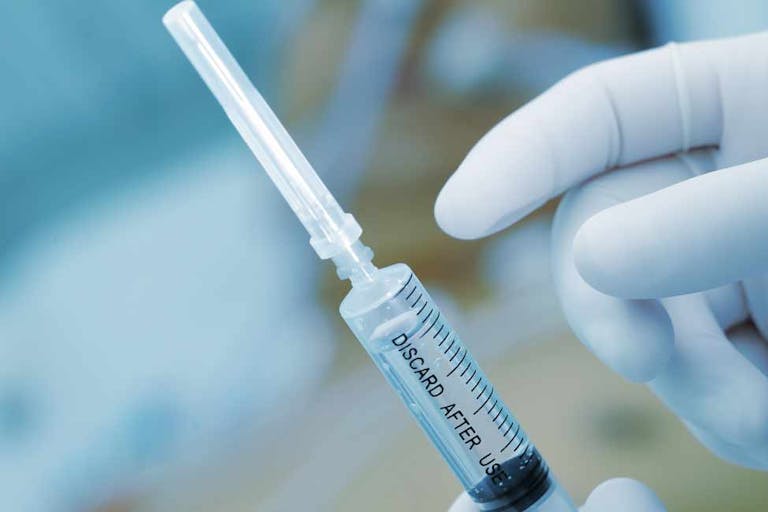
Exposé reveals IVF corruption: ‘They were playing with people’s lives’
A recent story in The Guardian exposed the depths of corruption in the fertility industry. From the United Kingdom have come increasing reports of doctors who have impregnated women with their own sperm or switched samples, leaving the children conceived feeling lost and as if they don’t know where they come from.
Toying with children’s lives
Catherine Simpson didn’t know she was donor-conceived until she was 40, and her father died. Only then, during a dispute over his will, did her mother admit that he wasn’t her biological father. “In that moment, my brother turned into my half-brother,” she told The Guardian. “My grandma wasn’t my grandma. None of my dad’s relatives – people I’d been brought up with – were biological relatives.”
The man who had raised her, George, had undergone a vasectomy, and at the time was unable to have it reversed. So Simpson’s parents sought out fertility treatment. Eventually, they used sperm donors — but the details of her conception were kept a secret. “The worst bit is not knowing where half of you comes from,” she said. “The more I wanted to know, the more my mum would tell me about her family, as if that compensated. And I would say, ‘That’s not enough.’”
Eventually, Simpson found her mother’s fertility doctor, but by then, he had died. She was left with only Ancestry.com to find her family — and incredibly, her results came back with a direct parent-child match. Her father, Paul Watts, had been a patient of her mother’s doctor, and the sample he gave was used to inseminate Simpson’s mother.
READ: Volume discounts and deals: Why IVF now looks a lot like a trip to Costco
In the United Kingdom, the Human Fertility and Embryology Authority (HFEA) was created in 1990, giving donor-conceived people the right to know basic information about their biological parents. In 2005, anonymous donation was banned and a donor-conceived register was created to help children find their parents and potential siblings. Yet the United States is much more loosely regulated, with the fertility industry largely serving as a free-for-all.
Many people discovered they were donor-conceived, and that they had dozens upon dozens of siblings. “The sheer quantity of them gave me a feeling of having been mass-produced,” one donor-conceived adult, Eli Baden-Laser, said. The impact this has, or will have, on the children once they become adults is rarely considered. It’s tragically becoming more common for people to marry, and later learn that they are actually biological siblings.
Simpson’s mother never got to find out how she had been betrayed by her doctor. The day after finding her father, Simpson’s mother died. “They were playing with people’s lives at the clinic,” she said. “I have been cheated. My biological father has been cheated. My parents have been cheated. People came from all over the world to see [fertility doctor] Reynold Boyd in Harley Street. This could affect thousands of people. Anyone who went to his clinic could have children they have no idea about. This went on in Britain in 1969. It’s not so long ago. How dare they have done this? Surely there is somebody who can take responsibility?”
Corruption in the industry
Simpson’s older brother was likewise donor-conceived, at Dr. Mary Barton’s fertility clinic. It was one of the first clinics in the United Kingdom to use donor insemination, but for Barton, the sperm donations used were frequently from her own husband, Bertold Wiesner. He’s believed to have fathered up to 600 children, although some believe the number could be as high as 1,000.
One Canadian man spoke about the horror of his experience. Though he agreed to be a sperm donor, he was told that there would only be 10-15 children, at most. Instead, he has nearly 50 children. “I would never have agreed to it if they had told me it was going to be 50 to 100,” he said. “It keeps me awake at night. I am in therapy.”
Some of the women impregnated by this man’s sperm were lied to as well; their doctors inseminated them not with their partner’s sperm, but with the anonymous donor’s. The doctor responsible, Norman Barwin, didn’t just switch around sperm samples when impregnating patients; he also used his own sperm without his patients’ consent or knowledge. Many families thought they were creating their own biological children, only to later discover they were Barwin’s.
Article continues below
Dear Reader,
In 2026, Live Action is heading straight where the battle is fiercest: college campuses.
We have a bold initiative to establish 100 Live Action campus chapters within the next year, and your partnership will make it a success!
Your support today will help train and equip young leaders, bring Live Action’s educational content into academic environments, host on-campus events and debates, and empower students to challenge the pro-abortion status quo with truth and compassion.
Invest in pro-life grassroots outreach and cultural formation with your DOUBLED year-end gift!
Women, meanwhile, are frequently exploited as surrogates in the industry, even as they’re treated like they don’t exist. “Altruistic surrogacy can be deeply exploitative and abusive, as I learned to my cost,” one former surrogate told the BBC. “We never hear about the dark underside of surrogacy, only the romanticized version in the media, and well-meaning women like me sign up not knowing the real risks and costs, then get used up and spat out.”
The fertility industry preys on low-income women, particularly in the United States, where women can get paid massive sums of money to carry a wealthy couple’s child. Meanwhile, the surrogates, as well as the children they produce, are treated like products to be used and thrown away.
Other people have lied about their medical history, like a man known as Donor H898. Though it’s now known that he lied about his medical history — and high numbers of his children have received diagnoses like autism, ADHD, dyslexia, epilepsy, and other developmental and learning disabilities — fertility companies are still selling his sperm. Donor H898’s children all turned out to have a genetic mutation linked to autism — MBD1 — but it doesn’t seem to matter to a fertility industry more concerned with money than with the lives of the human beings they’re creating.
Parents’ wants before children’s needs
Perhaps the worst part of the unchecked fertility industry is how little concern there seems to be about how it affects the children being created. This includes the secrecy surrounding their conception, which leads donor-conceived adults to often feel betrayed, as another woman profiled in The Guardian, Lisa, did. “My mother and father were great parents, they did their best for me, absolutely – but now, whenever I think about them, I also think: but you didn’t tell me,” she said of her conception, which she only discovered on her own as an adult.
Lisa eventually found her biological father, another patient of Boyd’s whose sperm had been stolen and used to impregnate Lisa’s mother. Slowly, the two began to build a relationship from a distance, but tragedy struck before they could meet. Her father died of COVID-19, and she met her half-sister for the first time at his funeral. “It’s so frustrating. It was a huge shock. He was such an approachable, funny, pleasant guy. I would love to have known [my sister] when I was younger,” she said. “I am angry on his behalf that the clinic had the audacity to do that… I actually don’t really consider myself as donor conceived any more. My husband calls it ‘donor conthieved’. It just feels as if I’m in a different category. And there must be a lot of other people in this category.”
READ: The fertility industry is not pro-life. It’s a profitable eugenic industry.
Alana Newman, founder of the Anonymous Us Project, published a book containing the experiences of donor-conceived adults, many of whom feel angry about how they were created. “I am a human being, yet I was conceived with a technique that had its origins in animal husbandry,” one person wrote. “Worst of all, farmers kept better records of their cattle’s genealogy than assisted reproductive clinics … how could the doctors, sworn to ‘first do no harm’ create a system where I now face the pain and loss of my own identity and heritage.”
Them Before Us is an organization devoted to children’s needs before parents’ desires. One woman, Ellie, wrote there about how no one considered how she, the child being created, would feel.
“I’m the child of a stranger, who altruistically sold me, his biological daughter, to a family he would never meet,” she said. “He signed away his rights to be a father to me, and my parents gladly bought the gift that would give them a child. They were ecstatically happy when my mother became pregnant, but no one considered how I would feel about the transaction that took place, how I would feel about having no right to a relationship with my biological father, no access to my paternal family, not even medical information.”
Then there are the physical risks. Children conceived through IVF are more likely to have a low birth weight, higher blood pressure, hormonal imbalances and advanced bone age, cardiovascular issues and cerebral palsy, autism spectrum disorder, leukemia, cancer, and infertility.
Yet the lives of these children come second to the desires of the parents creating them. Children, through the fertility industry, have been dehumanized as products to be bought and sold. The reality of the situation — that actual living human beings are being created — has been completely obscured by the doctors, the donors, and the parents. It’s no wonder that such corruption and carelessness have led to so much pain.
“Like” Live Action News on Facebook for more pro-life news and commentary!
Live Action News is pro-life news and commentary from a pro-life perspective.
Contact editor@liveaction.org for questions, corrections, or if you are seeking permission to reprint any Live Action News content.
Guest Articles: To submit a guest article to Live Action News, email editor@liveaction.org with an attached Word document of 800-1000 words. Please also attach any photos relevant to your submission if applicable. If your submission is accepted for publication, you will be notified within three weeks. Guest articles are not compensated (see our Open License Agreement). Thank you for your interest in Live Action News!

Nancy Flanders
·
Analysis
Angeline Tan
·
Analysis
Cassy Cooke
·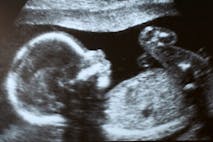
Politics
Madison Evans
·
Opinion
Nancy Flanders
·
Investigative
Carole Novielli
·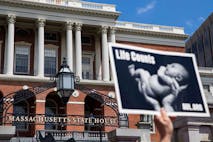
Politics
Cassy Cooke
·
Analysis
Cassy Cooke
·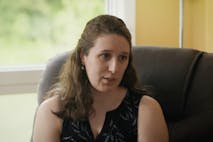
International
Cassy Cooke
·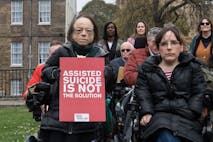
International
Cassy Cooke
·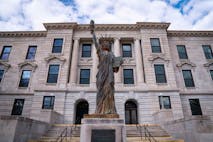
Politics
Cassy Cooke
·